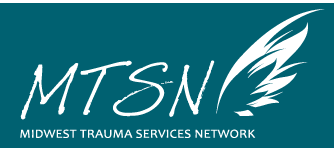Got stress? Think it’s just something that comes with life? Look around you, family members, customers, friends. Do you see anxiety? The number of people being diagnosed with anxiety has skyrocketed in recent years. Millennials and Xers may be habituated but does that make it ok? Just because you are used to something doesn’t mean it isn’t affecting you. The science is very robust, anxiety affects sleep, health and attachment. Let’s break down some ways to stress inoculate, that will be useful in everyday life, with all of the people you come into contact with.
It is helpful for some people to think about self-care in categories. There is what you do in the moment of crisis, what you do after a crisis has subsided and you need to get all the way back to chill state, and what you do ongoing to keep in a smooth rhythm from week to week. Let’s break it down a bit and remind ourselves of how we work on the inside.
When we get hit by a stressor, like a tense meeting, or a squabble with relatives or coworkers, it is important to remember what occurs for most of us on the inside. Stress chemicals are secreted into the bloodstream and circulated throughout our bodies. Our digestive system goes offline (chaotic, diminished or no liver, kidney, intestinal tract or bladder function) and our brain begins to compartmentalize. Heart rate increases, lungs prepare to take more air, big muscles are energized, and we get emotional.
One of my favorite sayings these days is “Anger is like taking poison and expecting the other person to die”, anger does not serve you in most instances, nor does fear. In fact, often, someone else is running your emotional labor instead of you, they get you to react, but it doesn’t have to be that way. Let’s look at the 3 pillars of self-care that can be used to keep you in control of your emotions and at the same time help with sleep and problem solving.
Acute safety plan- What you can do in the moment that will reverse the triggering effect of an emotional interaction.
Coping skills- Those things you do to get rid of energy and get yourself grounded. Example: Going for walks, listening to music.
Self-care plan- attending to 5 of the basic needs of humans that keep you centered, integrated and affectionate.
For this writing piece we will focus on the Acute Safety Plan:
What you do in the moment following an emotional interaction is key, you want to stay in control even though others may not.
Acute safety plan
Takes 10 to 20 seconds
Engages 3 to 6 breathing
Turns back on the digestive system
Brings the brain back to integration
Allows hydration to flush the stress chemicals
Contributes to focus and being present
Contributes to better sleep.
Your love matters! Put yourself in a position to see it clearly, without judgment, with curiosity and compassion. An acute safety plan or chill plan will be very useful for the relational part of your life. Next post we will break down Coping skills, the second pillar of self care.
